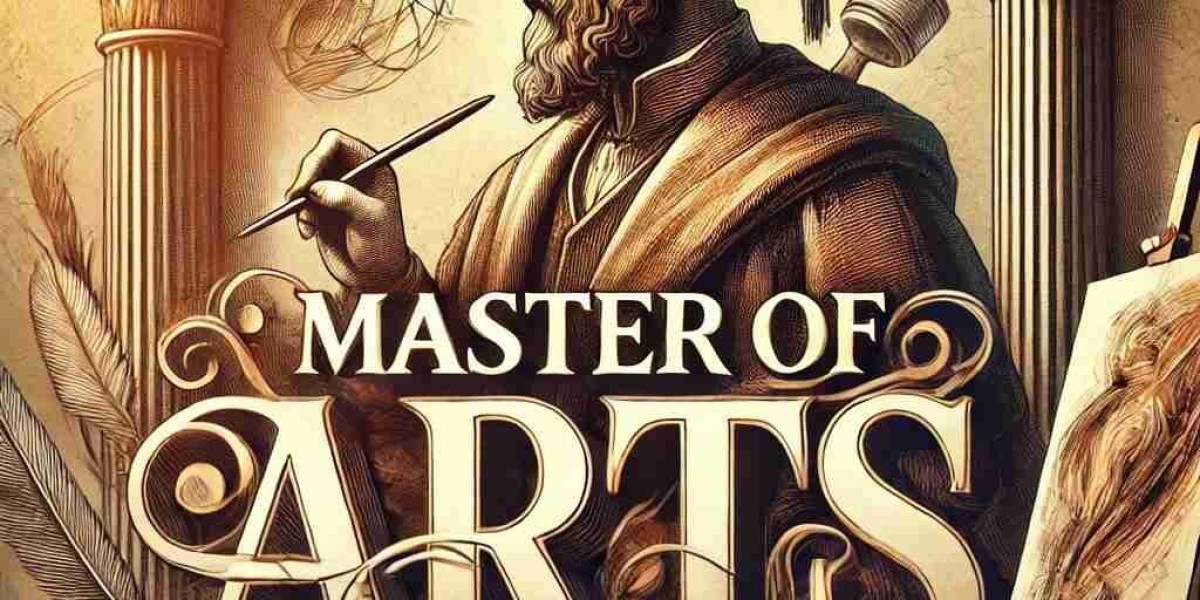In an era dominated by rapid technological advancements, discussions often circle around degrees in STEM (science, technology, engineering, and mathematics). People assume these fields hold the key to the future. But here’s the thing: the world isn’t run by science alone. Ideas, culture, creativity, and human connection matter just as much. This is where the Master of Arts (MA) degree comes into play—more relevant than ever in today’s complex world.
Think about it. Artificial intelligence is taking over repetitive tasks. Automation is reshaping industries. Yet the demand for critical thinking, creativity, and communication is soaring. And guess what? These are exactly the skills an MA program nurtures.
Redefining the Value of Education
What’s the MA full form? Simple—Master of Arts. But the name doesn't capture the degree’s immense value. Traditionally, an MA was associated with fields like history, philosophy, literature, and the arts. However, it’s no longer just about academic exploration. Today, an MA is about problem-solving, building connections, and leading with empathy.
Take this for instance. A tech company designing the next big app needs more than just coders. They need cultural analysts, communication experts, and people who understand how users think. That’s where MA graduates step in. They bring a human touch to otherwise technical worlds. A Master's in Arts bridges the gap between logic and emotion, data and creativity.
Broadening Career Horizons
Gone are the days when an MA meant a career limited to academia. Today, employers actively seek out people with advanced arts degrees. Why? Because these graduates bring unique perspectives that STEM-focused education sometimes lacks.
Imagine a public relations officer crafting a campaign that sparks genuine conversations. Or a policy analyst tackling real-world challenges with ethical and cultural awareness. These aren’t just jobs; they’re transformative roles. And MA graduates fit right in.
Interestingly, many organizations now pair humanities with tech. For example, Google famously hires anthropologists and sociologists to make their products more user-friendly. Their reasoning? Empathy-driven design sells better.
A Crucial Tool in a Globalized World
Our world is more interconnected than ever. From global trade to cultural exchanges, understanding different perspectives is critical. An MA offers precisely that: a lens to view the world beyond borders.
Picture this. You’re working on a global team where teammates come from different cultural backgrounds. How do you ensure effective communication? An MA in cultural studies, linguistics, or international relations equips you to navigate these complexities. It’s about fostering inclusivity, not just efficiency.
Think of it like this: A STEM degree might teach you how to build a bridge, but an MA teaches you why the bridge matters and who it impacts. And that understanding? It’s priceless.
A Pathway to Lifelong Learning
One of the most underrated aspects of a Master of Arts degree is how it instills a love for learning. It doesn’t matter if your field is literature, sociology, or psychology. What matters is the ability to ask questions and explore answers—skills you’ll use forever.
For example, consider a journalist investigating complex issues. Their research, storytelling, and ethical reasoning all trace back to the foundations of an MA program. In a world where knowledge evolves daily, the curiosity and adaptability an MA cultivates are invaluable.
The Tech-Humanity Balance
Sure, we’re living in the age of technology. AI, machine learning, and data science are reshaping the future. But here’s the catch: technology can’t replace humanity. It can crunch numbers but can’t grasp emotions. It can make predictions but can’t inspire.
This is where arts graduates shine. A psychologist with an MA might help teams design better mental health tools. A linguist could work with AI developers to refine natural language processing. The synergy between technology and the arts is undeniable—and increasingly essential.
Breaking the Stereotypes
The stereotypes surrounding an MA degree often feel outdated. People say it’s “impractical” or “too theoretical.” But is it? Not really. The truth is, soft skills are the hardest to teach. And these are precisely what an MA sharpens.
Whether it’s critical thinking, effective communication, or creative problem-solving, MA graduates possess what the job market craves. Employers know technical skills can be taught. Vision and leadership? Not so much.
The Role of MAs in Shaping Society
What do Shakespeare, Gandhi, and Freud have in common? They weren’t scientists, engineers, or coders. Yet their work transformed societies. Arts and humanities create the narratives that shape the world.
An MA graduate doesn’t just learn about the world—they influence it. From writers sparking movements to historians preserving culture, their contributions ripple through time.
In today’s polarized climate, these contributions are even more critical. A political scientist with an MA might help bridge divides. A filmmaker could amplify unheard voices. The impact is profound—and necessary.
Why Choose a Master of Arts?
If you’re still wondering, “Why should I pursue an MA?” here’s why:
- Versatility: The skills you gain are adaptable across industries.
- Leadership: MA programs foster confidence and vision.
- Impact: You’re not just building a career—you’re shaping society.
The best part? You don’t need to have a “perfect plan” before starting. An MA is as much about discovering your passions as it is about refining them.
Conclusion
The Master of Arts degree isn’t just surviving in the age of technology—it’s thriving. As the world grapples with questions of ethics, culture, and identity, the need for arts and humanities grows stronger.
The MA full form may sound simple. But its implications? Deep and far-reaching. It’s not just a degree; it’s a journey toward understanding, connection, and impact. So, the next time someone tells you the arts are irrelevant, remind them: Without humanity, what’s the point of progress?
FAQs About Master of Arts (MA)
1. What does the MA full form stand for?
The MA full form is Master of Arts, a postgraduate degree focusing on arts, humanities, and social sciences.
2. Is an MA degree still relevant in today’s job market?
Absolutely. With growing demand for critical thinking, creativity, and communication, an MA is more relevant than ever.
3. What career options are available after an MA?
Graduates can pursue roles in education, public policy, marketing, journalism, international relations, and even technology.
4. How does an MA differ from an MSc?
While an MSc focuses on scientific and technical fields, an MA emphasizes humanities, social sciences, and cultural studies.
5. Can an MA complement a STEM career?
Yes! Many professionals combine an MA with technical expertise to excel in areas like user experience design, tech policy, and communication.









